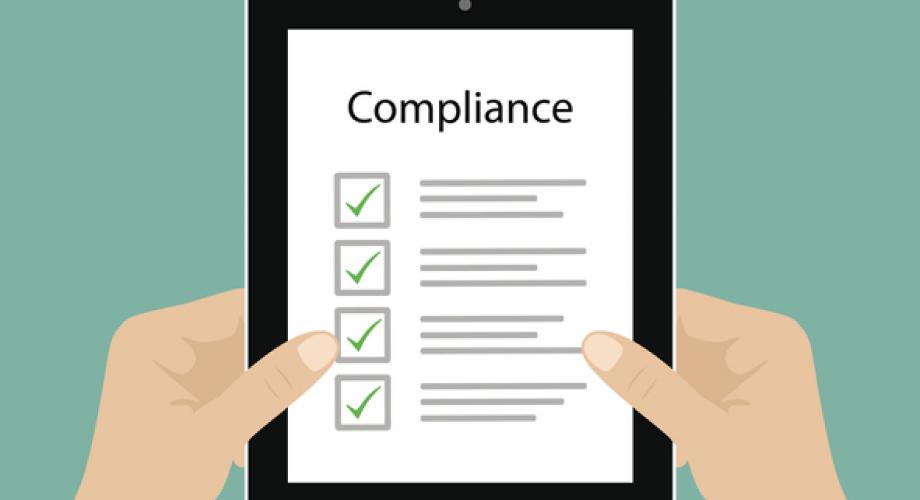Code noncompliance can lead to a host of monetary and reputational consequences for owners and operators. But it doesn’t have to be that way.
By Stephen Ursery
Apartment owners and operators often dread the many building inspections that take place at their communities. Making sure their properties are perpetually "inspection ready" can feel like a daunting undertaking.
But as panelists during NAA’s APTvirtual's session, “Cracking the Code: Are You Ready for the Building Inspector?” session pointed out, owners and operators must prioritize code compliance. Otherwise, they put themselves at risk of a variety of negative consequences.
"Property owners could face fines, fees, civil or criminal penalties," said Sam Gilboard, Manager of Public Policy at the National Apartment Association. "If we're talking about new construction, there are multiple phases that require sign-off from that jurisdiction to proceed forward. By not being compliant, you are going to see delays in that construction and that means less housing coming to market."
Jonathan Lane, Vice President of Maintenance and Engineering Services at Bozzuto, noted that non-compliance can have an impact on public perception of a property and its owner or operator.
"Sometimes these things are posted publicly," he said. "When you fail an inspection, some of that information can get out, and it could actually damage your reputation as an operator with residents and others in the community."
Non-compliance can present insurance issues as well, said Dave Denslow, Managing Director of Global Innovation Building Systems at Greystar. Property owners can be forced to cover expenses insurers won't, he said.
In addition, if the issue "is egregious enough that insurance is cancelled on you and you have to go get new insurance, you have to be truthful about why your insurance was cancelled and that's a whole other ordeal in itself," Denslow added.
A Modern Approach to Code Compliance Management
The main way to avoid code violations is to have an ongoing, proactive program to make sure your properties are in compliance.
According to Lane, Bozzuto team members perform quarterly inspections to ensure their communities are in compliance with codes. The company uses an automated online platform to manage and track the program, and it ties the results of the inspections into employee performance reviews.
Denslow said his company has a similar system in place and uses an automated online system to monitor for code changes. This efficiency allows "us to focus on bigger things like asset preservation, resident satisfaction and related items," he said.
Affiliates of the National Apartment Association can help owners and operators keep on top of code changes, Gilboard said.
"Our affiliates at the state and local level are really terrific resources for industry practitioners because it's those affiliates that are working at the ground level with local lawmakers who are going to be amending or adopting these codes, so they are really a good resource for the latest on codes and code development," he said.
The Pandemic Effect
The coronavirus has undoubtedly had an impact on the code-compliance inspections performed by jurisdictions, the panelists noted.
"We've seen throughout this pandemic that businesses have closed and shut down temporarily," Gilboard said. "Local government offices and the divisions that work within them are no exception, and you do see building officials who are not going into work or their departments are closed.
The result is a delay in local government inspections, although some jurisdictions are conducting some inspections remotely via video, Gilboard added.
The pandemic also has resulted in new regulations that operators must adhere to.
"Every different jurisdiction has a different shutdown and reopening plan,” Lane said. ‘Some have two or three phases; some have six or eight. We have to keep up with what requirements are in place for each one of those phases so that we are able to react, do things safely and meet the requirements that keep our residents and our employees safe."
In the end, the panelists argued, apartment companies should embrace rigorous, proactive compliance programs in part because they lead to necessary preventive maintenance and benefit asset value.
"I have found that compliance is really a byproduct of trying to do things right, of trying to do things the right way the first time," Lane said. "We really can't wait for an accident to try to be safe. We have to maintain safe and efficient operations at our properties to keep our residents happy and to have them renew their leases – that's what it all comes down to."
Stephen Ursery is a Content Manager for LinnellTaylor Marketing.
NAA’s Compliance Tool Awarded Patent
One performance management and compliance software noted in the “Cracking the Code” APTvirtual session was NAA’s very own Click & Comply, which was recently awarded a patent for its use of artificial intelligence (AI) to translate federal, state, city and municipal codes into proactive compliance tasks to ensure adherence to applicable laws, saving organizations from costly violations.
Given the sheer number of locations represented by the NAA membership, the use of machine learning that automates local code compliance and generates actionable items offers great benefit for end users relative to risk mitigation and code infractions.
Active machine learning typically requires millions of data samples to establish patterns for recognizing the kinds of information contained in documents such as legal statutes and codes. However, using the method described in the patent, the process is accelerated using expert knowledge and can return results to NAA Click and Comply in a much shorter timeframe.
